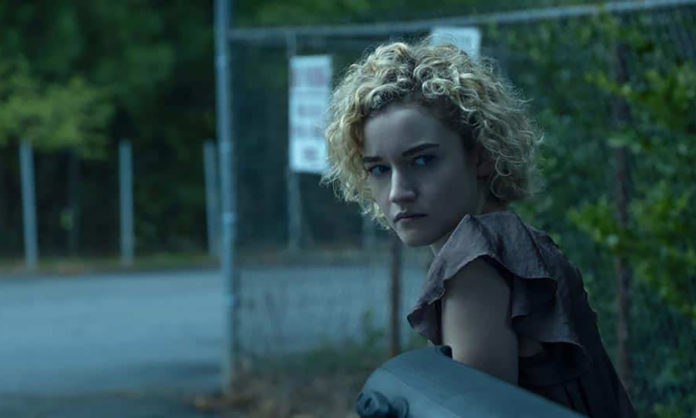In the latest in their series on Original Characters, Industrial Scripts examines Ruth Langamore from the Netflix series Ozark. What is their criteria for an original character? “It’s a character that sticks with you even when they’re long gone from your screens,” the article states. “Most importantly, in screenplay terms, an original character is a character that shines through in spite of any other weaknesses within that screenplay…the original characters steal the show.”
In Ozark, Ruth Langamore is the only female member of a local family mixed up in crime. Though only 19, Ruth dominates her uncles and cousins, and encourages her cousins to get their educations, rather than follow their elders into crime. “Ruth is immediately a character the audience warms to because of the way she stands out amongst her family,” the article states. “She’s a leader, despite her age, and she’s wily enough to wriggle her way out of difficult situations.”
So, how is she original? According to the article, Ruth is unpredictable. She doesn’t seem to know herself as well as the audience does. When she acts, it’s by instinct, which seem to be one step ahead of her conscious thoughts. “This is typically what leads to her blowing off the handle or finding herself in perilous situations,” the article states. “We always sense she’s a character who will make concrete choices. She won’t sit on the fence but will instead do what she feels is right or necessary. This will regularly plunge her into high-stakes situations, ones which will inevitably have consequences.”
Ruth is also fighting against her family’s crime background, even as she’s deeply attached to it. She wants to break the “Langmore Curse” but also cares deeply about her cousins. “In this sense, she’s someone torn between her head and heart,” the article says. “She cares deeply for her family and will do almost anything to protect them. But she’s also in constant conflict with them, particularly when it comes to her ambition.”
Ruth’s relationship with Marty Byrde, her business partner, and Ben Davis, her romantic partner, are similarly complicated. In Marty, Ruth sees someone who can support her ambitions, but she never fully trusts him. With Ben, Ruth laughs and reveals her vulnerability.
“This shows how in characterization, a variety of relationships are essential in portraying the full extent of the character at hand,” the article states. “Different relationships should bring out different sides to a character, helping us, as the audience, to get a full three-dimensional picture of this person.”












